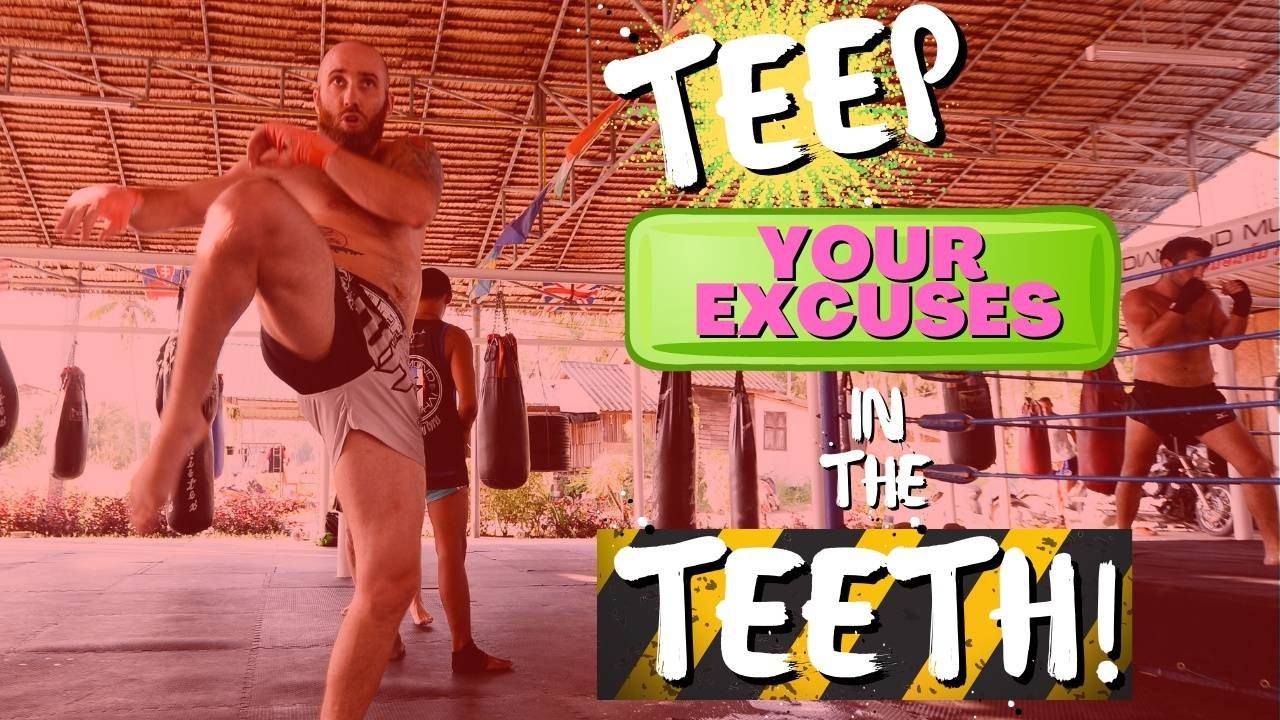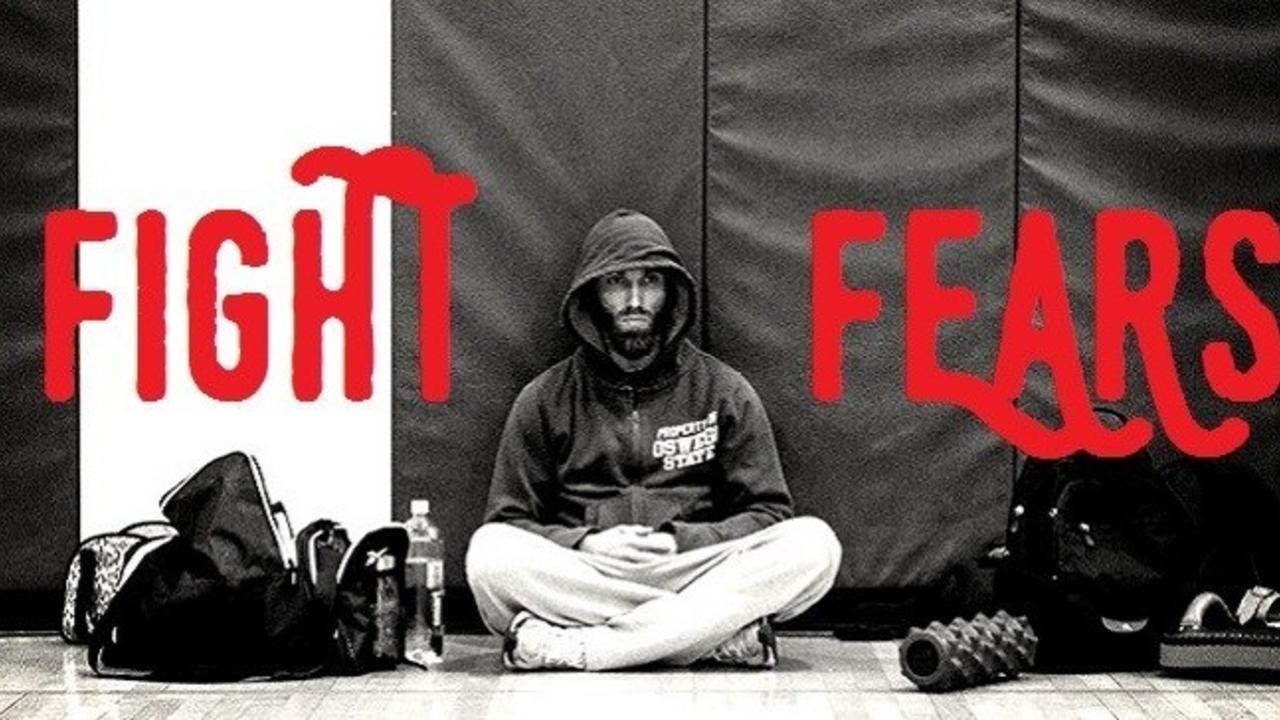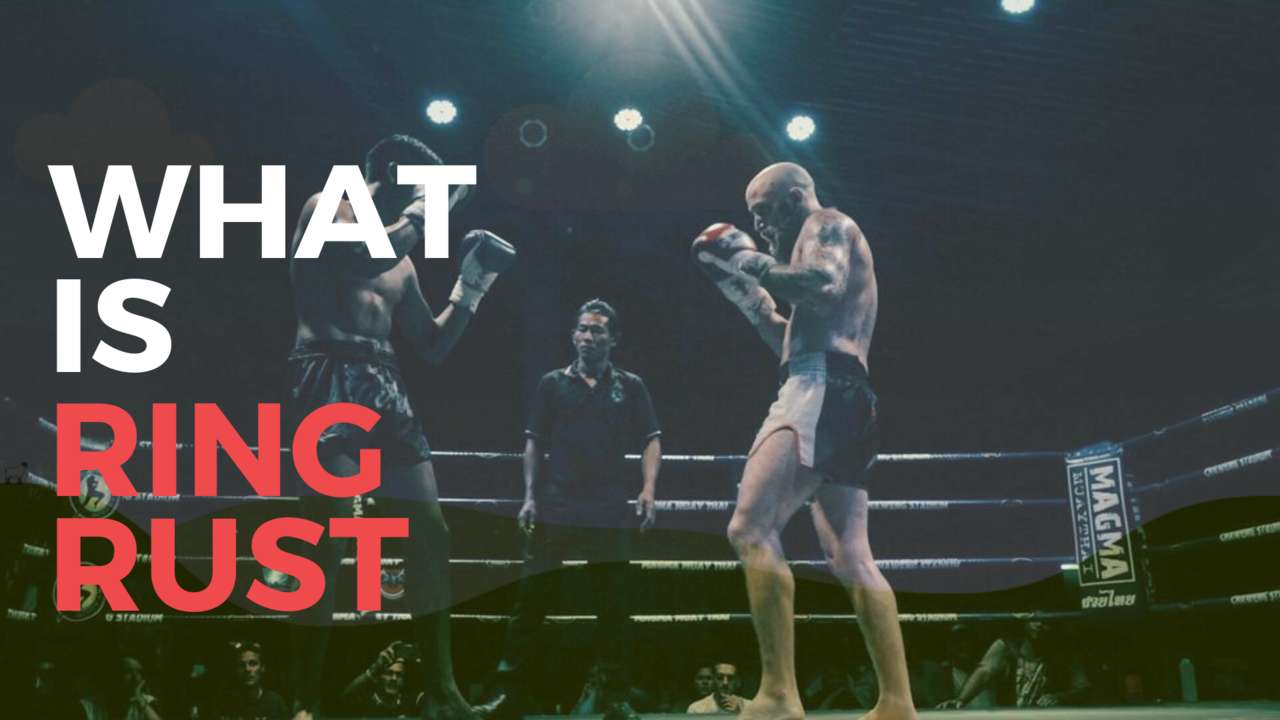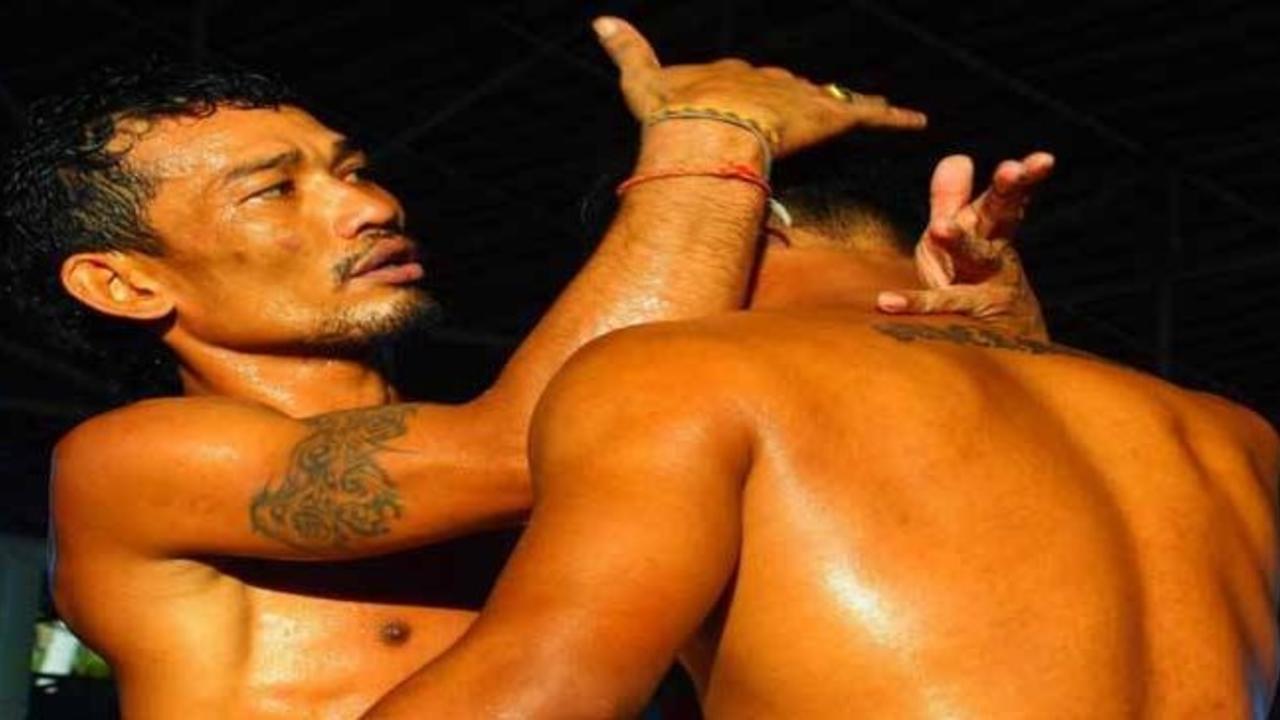This Is How To Silence Your Inner Critic

THESE TECHNIQUES WILL KNOCK YOUR MID-WORK EXCUSES OUT COLD!
By Ashley Reign
We've all been there. You're training at the gym or practicing on your heavy bag in the garage. Even as you were gloving up, you promised yourself you were about to have a next-level workout and, for the most part, you’ve been killing it.
Then out of nowhere, that negative voice shows up in your head with all the bravado of your drunk Uncle Herb at a family reunion. “You’re going to be so sore tomorrow if you keep this up,” it says. “Throw in the towel and let’s go eat some chips,” it says.
Before you know it, you're concentrating more on whether or not it has a point than on your workout. That voice and its countless excuses belong to something I’ve come to call your “inner critic.”
The bad news is that we all have an inner critic that’s constantly out to keep us from achieving our goals. The good news is that it’s totally possible to stop it from hijacking your training sessions.
In fact, the ability to...
Fear: How A Fighter Thinks

LEARNING TO HARNESS & WIELD YOUR FIGHTING FEARS

By DJ Miller
In the sport of Muay Thai or combat sports in general, the spectator sees two fighters against one another. One of the fighters will become the winner, the other the loser. Black and white, cut and dry. But there is another battle raging- an unseen war being fought individually, by each fighter inside his or her own head.
The pressure to perform, to live up to expectation, to represent and, most of all, the pressure of satisfaction. When a fighter accepts a fight, they smile, promote, rally others to their support, and market and sell the fight. What you will not see is the worry, the anxiety, the stress, the fear… the pressure.
Today we’ll examine some of the mental gymnastics a fighter performs ahead of their bout, as well as the internal torture they endure.
What Makes A Fighter Tick?
For any fighter, amateur or professional, staying busy in a fighting career is always important. Most fighters accept any figh...
What is 'Ring Rust'?

HOW TIME OFF TURNS YOUR RHYTHM RUSTY
By Angela Chang

You fought and are now taking some time off. Weeks turn into months, and months into years. Finally, the time has come when you tell your coach you’re ready to get back in the ring.
You train hard, make weight, and now it’s time to fight. The first round starts and you feel incrediblyslow. This surely isn’t your first fight, but you feel very slow to react and have trouble finding your distance and timing. This goes on for another round or two before you begin to feel your familiar rhythm flow back into you.
Even if during your time off from fighting you were still training, you may experience something called ring rust when you start competing again. Ring rust is a phenomenon experienced by many when they take a (long) period of time off from fighting and they’re not feeling as sharp as they did when they last competed. They can feel physically slow; feel more nervous than normal; be less reactive in the fight; get tired more ...
“Embracing” The Thai Clinch: Embarrassment & Epiphanies Inside the Clinch

My Frustrations, Anxiety and Eventual Enlightenment Inside The Muay Thai Clinch
From Muay Thai Guy

I HATED the clinch.
Whenever clinch training would go down I would try to find an excuse to miss out on grappling with the other fighters. I wasn’t proud when I would opt out of clinch class, but my fear of being embarrassed, getting kneed at will, and being tossed around like a rag doll would always win over.
I SUCKED at the clinch.
Mainly because I would always avoid training it!
Although I was well aware of the fact that I would always back out of clinch training, I would try to make myself feel better by telling myself that I’m a good enough fighter to do well without engaging on the inside. Who needs the clinch when you can just knock people out with your hands right?
Wrong.
Unfortunately, I had to learn this through experience, which in hindsight was probably the only way I was going to actually learn the importance of training and accepting the Thai clinch as part of ...
Iron Mindset: 3 Ways to Think (and Perform) Like a Fighter

“Fighting is 90 percent mental, and the rest of it is in your head.”
From Muay Thai Guy

The psychology of fighting has spawned more Yogi Berra-style quotes than I can count, but they all seem to agree on one thing: mental toughness is key.
Throughout the history of combative sports, certain fighters have found ways to “weaponize” their minds, using mental toughness to break their opponents in the way others use speed, conditioning, or technique. This article aims to give you tools to add this kind of psychological weapon to your arsenal.
In today’s special guest post, the Warrior Punch team offers up three psychological techniques you can use to build an iron mindset.
Whether you’re a boxer, nak muay, karateka, or a white-collar worker trying to build up the courage to ask for a promotion, these mental strategies will help you manage self-doubt, maximize performance, and find strength in scary situations.
1. Draw Strength from Your Skill; Trust Your Technique

One of the best...







